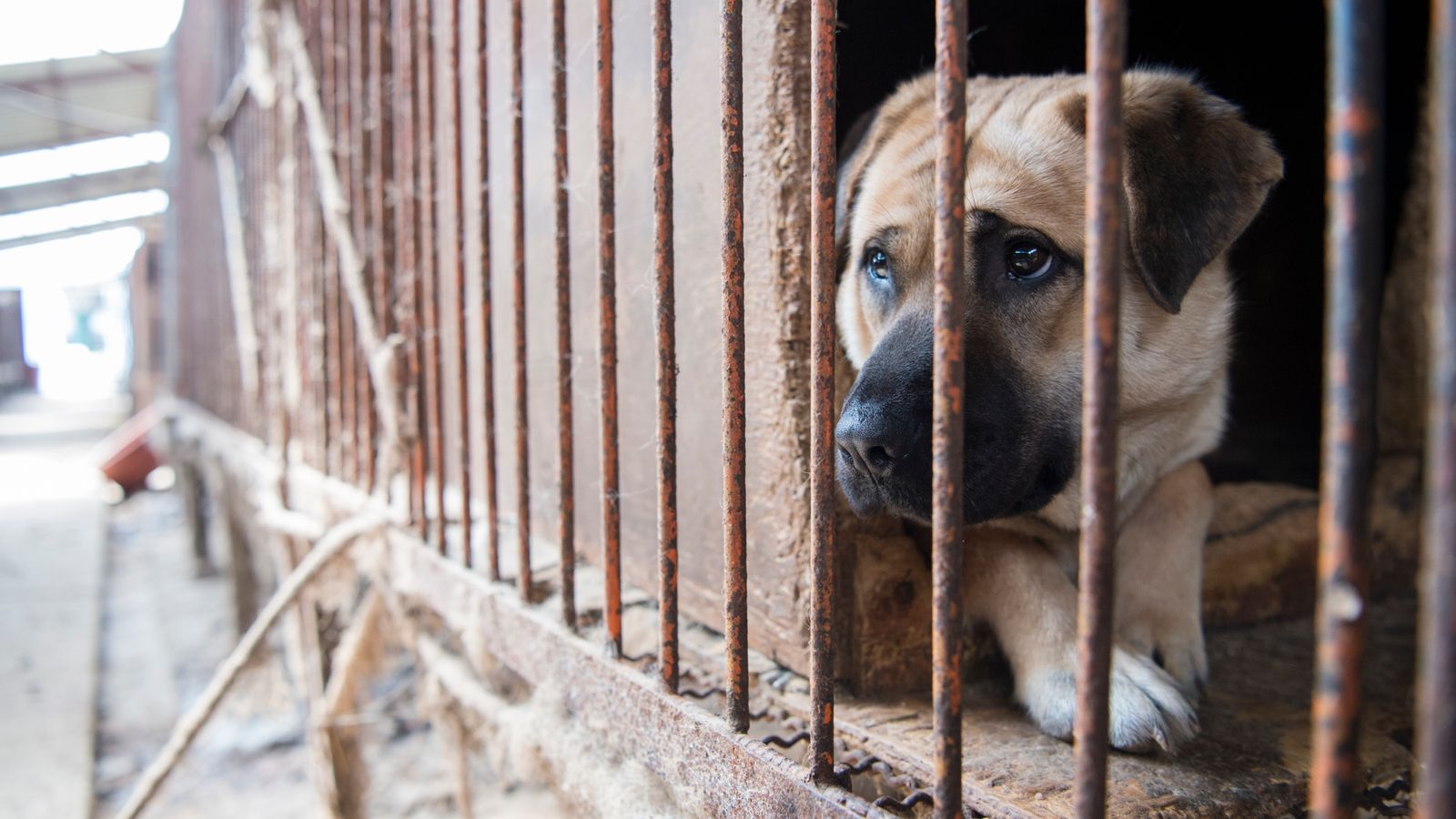South Korea is launching a taskforce to consider making the consumption of dog meat illegal after the country’s president offered to look into ending the practice.
The number of restaurants that serve dog meat in the country have fallen as younger people generally find it a less appetising dining option and pets are growing in popularity.
But recent surveys indicate more people oppose banning dog meat even if many do not eat it.
Seven government offices including the agriculture ministry said they decided to launch the group comprising officials, civilian experts and people from related organisations to deliver recommendations on potentially outlawing dog meat consumption.
It said authorities would collect information on dog farms, restaurants and other facilities while examining public opinion.
The statement said “public awareness of their basic rights and animal rights issues are tangled in a complicated manner” when it comes to dog meat.
Public opinion suggests “people have negative views both about eating dogs and legally banning it”, it noted.
Squid Game series two confirmed by creator Hwang Dong-hyuk after South Korean show’s record Netflix success
Squid Game Halloween costume: Netflix hit sparks boom for South Korean garment industry
Squid Game: Netflix to edit out phone number from show after woman in South Korea gets barrage of calls from fans
The government says the initiative does not necessarily guarantee a ban of the centuries-old practice, a stance that drew immediate protests from dog farmers and animal rights activists.
Farmers say the taskforce’s launch is a formality to shut down their farms and dog meat restaurants, while activists insist the government’s announcement lacks resolve to outlaw dog meat.
Ju Yeongbong, general secretary of an association of dog farmers, accused the government of “trampling upon” people’s right to eat what they want and farmers’ right to live.
Lee Won Bok, head of the Korea Association for Animal Protection, described the government’s announcement as “very disappointing” because it did not include any concrete plans on banning dog meat.
About one million to 1.5 million dogs are killed each year for food in South Korea, a decrease from several million around 10-20 years ago.
Thousands of farmers raise up to two million dogs for meat, according to the association of dog farmers.
Mr Ju said the farmers, mostly poor, elderly people, wanted the government to temporarily legalise dog meat consumption for about 20 years, with the expectation that demand would gradually taper off.
But Lee said animal rights organisations wanted a more rapid end of the business.
“South Korea is the only developed country where people eat dogs, an act that is undermining our international image,” he said.
“Even if the K-pop band BTS and the (Korean drama) Squid Game are ranked number one in the world, foreigners are still associating South Korea with dog meat and the Korean War.”
He also accused many farmers of animal cruelty and other illegal activities when they raise and slaughter their dogs. However, Mr Ju argued activists “exaggerated” such information, and that it only applied to a small number of farms.
It comes after President Moon Jae-in, a dog lover, asked during a meeting with his prime minister in September “if it’s time to carefully consider” a ban of dog meat, sparking a new debate.
Dog meat is neither legal nor explicitly banned in South Korea.






















